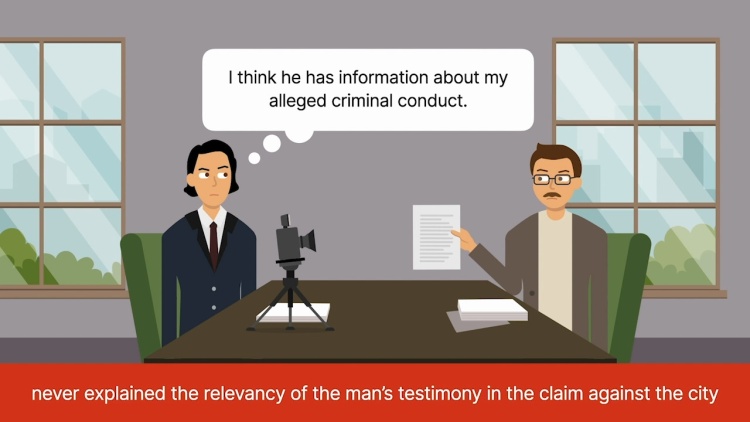In the Matter of Hammer
South Carolina Supreme Court
395 S.C. 385, 718 S.E.2d 442 (2011)
- Written by Samantha Arena, JD
Facts
Between 2007 and 2008, attorney Hammer (defendant) was charged with various crimes against his former wife, including criminal domestic violence, trespassing, burglary, stalking, and assault. The charges were all subsequently dismissed. Hammer denied commission of the crimes, but conceded that he could have used better judgment at the time. After the charges were dismissed, Hammer sued the City of Columbia, claiming false arrest, and representing himself in the suit. During the course of the proceedings, Hammer subpoenaed three witnesses, including Witness A, all of whom were former neighbors who had supported Hammer’s former wife during their divorce. Hammer stated that he subpoenaed the witnesses because he believed they possessed information about the prior criminal allegations against him, but did not explain why their testimony was relevant in his suit against the city for false arrest. Hammer deposed Witness A over the course of two days, asking a number of improper questions about his sexual orientation and HIV-testing. When Witness A could not recall the events completely, Hammer asked whether he had Alzheimer’s disease. Hammer later admitted that the questions were inappropriate. Hammer entered into an Agreement for Discipline by Consent with the Office of Disciplinary Counsel (plaintiff). Hammer conceded that his actions constituted professional misconduct, and (1) consented to sanctions ranging from admonition to a six-month suspension, (2) agreed to complete a legal ethics training program within one year of his reinstatement, and (3) agreed to attend psychological counseling as deemed appropriate by the court.
Rule of Law
Issue
Holding and Reasoning (Per curiam)
What to do next…
Here's why 907,000 law students have relied on our case briefs:
- Written by law professors and practitioners, not other law students. 47,100 briefs, keyed to 996 casebooks. Top-notch customer support.
- The right amount of information, includes the facts, issues, rule of law, holding and reasoning, and any concurrences and dissents.
- Access in your classes, works on your mobile and tablet. Massive library of related video lessons and high quality multiple-choice questions.
- Easy to use, uniform format for every case brief. Written in plain English, not in legalese. Our briefs summarize and simplify; they don’t just repeat the court’s language.





